Bob’s Burgers: Meet the gay man behind Linda’s iconic voice
John Roberts is the voice behind Linda Belcher, the unstoppable, buoyant matriarch on Fox's hit "Bob's Burgers."

About 15 or so years ago, Loren Bouchard got a call from Olivia Wingate. At the time, Wingate was managing a little-known stand-up comic named John Roberts, who had found modest viral success on YouTube.
“Watch ‘The Christmas Tree,'” she insisted. “Look up ‘The Christmas Tree’ on YouTube.”
Bouchard, who had found success in animation in the late ’90s with Dr. Katz, Professional Therapist and Home Movies, was getting ready to pitch a new project to the networks about a family of cannibals who ran a burger joint. Intrigued by Wingate’s call, he complied.
“I watched [The Christmas Tree] that night when I was in New York — I was staying in a little hotel,” the creator and fabled showrunner of Bob’s Burgers recalls. “He was doing his mother in these videos. I think of it as postmodern drag. It’s him in this incredible wig and the big sunglasses and his mother’s actual sweaters, but also with his hairy arms. There was just something really, really brilliant about it. It was sensitive but silly and broad at the same time. I got in touch and said, ‘He’s phenomenal.’
“I knew immediately that it would work for us in animation,” the soft-spoken Bouchard continues. “To me, it felt like a voice that, if he was willing to loan it to us — because he already obviously had a home for that voice — but if he was willing to also loan it to us, I knew that character could be someone who you believed. Even though it was a broad voice. And even though it was a man doing a woman. To me, it just felt lived in — so deeply, deeply lived in and believable that it transcends an actor doing a character.”
Bouchard reached out to Roberts just before they recorded a short demo, which would also feature H. Jon Benjamin as the titular Bob.
“I asked John, ‘Would you ever be willing to do that voice in animation?’ And he said, ‘Yes.’ So we wrote Linda for him, for that voice.”
The rest, as Linda might exclaim, was “Allriiight!”
“It just gave us so much confidence in that character, it gave us so much life in that role, so much strength,” says Bouchard. “Linda’s such a force. She’s relentlessly upbeat, but not in a cloying way. It’s not like some 1950s cheerful housewife. This is a force of nature. We were off and running from the moment John agreed to it.”
Funny, wise, warm, witty, and delightfully quirky to a fault, Bob’s Burgers, currently in the midst of its 12th Season as part of Fox’s Sunday “Animation Domination” slate, and with a breathlessly anticipated feature film headed to theaters this May, has become an American treasure.
The Belcher family may no longer be cannibals — a notion that was likely rejected by Fox — but they are a family with normal trials and tribulations, who get through their challenges with an abundance of love and familial bonds, despite their penchant for playful sniping and sarcasm. It all congeals with a humor that is singular within the current network television landscape.
Bouchard acknowledges that Linda Belcher has an authentic, adult sensuality embedded within her, much of it derived from the way Roberts spins a line.

“She’s lusty,” he laughs. “It’s not as explicit, for example, as we are with Tina, who we describe as effectively a 13-year-old version of horny. But Linda is earthy and connected with her own desires in a way that makes you think of a full adult life, including her sexuality. Even just the way she drinks wine is lusty.”
Bouchard says Linda will find a deeper purpose in the forthcoming Bob’s Burgers Movie.
“One of the things we wanted to do in the movie was really talk about this marriage, and what it would be like when one or both of them loses their heart? When they lose that, when things are tough, and it looks like they might not be able to stay open. The possibility is very real that this restaurant might not succeed and they might have to close and call it quits. What does it look like when Bob cannot function fully anymore? And just how much is Linda the engine of hope and grit?”
For his part, the 50-year-old Roberts is living a dream come true. After pitching several pilots that didn’t pan out, the comic, who has had a parallel career as a musician (last June, he released Lights Out, a dance album co-created with legendary DJ and producer Junior Sanchez), feels blessed to be part of the Bob’s Burgers family.
“Slowly we gained an audience,” Roberts says of the series. “Loren, the writers, the cast, everyone, it was a group effort. We all really combined our superpowers and ended up with a great show that’s still going.”
As for his mother, whose voice he “borrowed” — and who, Bouchard notes, “doesn’t actually sound like that, which makes it even better in a way” — Roberts says that she is thrilled with being immortalized in cartoon history.
“She loves it,” he says. “I mean, I was pretty broke until I turned 40. And this is a great thing that she gets to be a part of it, too. She’s very cool about it. She knows how to laugh. She has a great sense of humor. She’s very loving and supportive. So I lucked out.”

METRO WEEKLY: It occurred to me, leading up to this interview, that I’ve never seen a bad episode of Bob’s Burgers. Every single episode is quality. Every single episode has heart. Every single episode is funny. It’s impressive to find a show this long-running that doesn’t have even some dips in it. How does it feel to be affiliated with a show that is this consistently great?
JOHN ROBERTS: I’m unbelievably proud. It’s like a dream job that I never saw coming. The writers are so incredible. Loren’s such a great showrunner — he’s so cool and levelheaded to work with, there’s never been any drama. He’s just been on top of everything in terms of making a quality show. I was never on a TV show before this. I made pilots and things and had hoped to be on camera — that got very close. But Bob’s really turned out to be the best-case scenario in the sense of you’re able to see everything from the ground up, and see how everything works, and learn from working with great people which is always going to benefit you down the road. So, yeah, I’m proud.
MW: How did you get involved with Bob’s Burgers?
ROBERTS: I was performing in the East Village at an LGBTQ place. There was a room in the back with a little DJ booth and a small stage. And I would perform there, and sort of got my stage legs. I tried out material. And this is 10 years after I already graduated from the American Academy of Dramatic Arts, the acting school. I just stopped acting for 10 years and made music in my room and got really more introverted during those years, probably dealing with my sexuality or whatever, and not feeling very at home at the comedy clubs at that time. And so I performed some of my YouTube stuff live. And that always got a great reaction from the audience. “The Christmas Tree” and “My Son is Gay” and “Jackie & Debra.”
A lot of the people from the comedy scene weren’t coming to our show at Starlite Lounge on Avenue A. It was mixed with a lot of people, but not really industry people. It was just more the neighborhood vibe, which was good to explore things and gave you a venue to work out every week, which is very important. If you want to be good at comedy, it’s always really important to just work the material out in front of an audience.
Then I got a manager and booked bigger clubs. At the time Comics on 14th Street was a big club and they paid really well compared to what I was making waiting tables and stuff. And I started to get some deals for pilots. I wrote a pilot with Bob Odenkirk for MTV.
The Bob’s pilot sort of came to me during that time. It took about two, two and a half years till it really took off. We were [originally] a family of cannibals. It was like the little pilot that could. And it slowly just gained steam because Loren Bouchard was already legendary in terms of Adult Swim and the shows that he already had. He was kind of a new voice, at the time, in animation.
So it really all came together very organically. I didn’t have to audition for it. I really hate auditions, and I got to not audition for this.
MW: So they just called you and said, “We want you to do Linda”?
ROBERTS: Loren saw my character [on YouTube] and he basically created the character of Linda for me with my voice. And then I got to do the demo. He kept everybody from the demo, which is great. He stood his ground. Because those execs, they always like more famous people, and I was pretty much just a YouTube guy, which was rare to get a job that way. I mean, maybe not as much now. But back then it was very organic and probably the best-case scenario for ever landing a job on TV. I managed to get a piece of the action, which was good.

MW: How did you develop the voice for Linda?
ROBERTS: Well, it’s basically my mom. My mom’s from Brooklyn. She’s from Bensonhurst, so she’s got this very Brooklyn accent. A lot of Linda is based on my mom. The voice, the inflections, and a lot of the improv. I was just almost doing the voice my whole life. It’s a voice I’ve been doing since I was a child, pretty much.
My parents divorced when I was very young. And I was around a lot of women, always. I was usually always the only boy there. A lot of my mom’s friends all divorced with daughters. It was a lot of female energy, which I loved. I fit right in and consider myself very female in a lot of ways emotionally. So it’s just very natural for me.
MW: Did they show you the character design at all before you recorded it?
ROBERTS: No. And she looked different originally. You could look on YouTube at the pilot, you’ll see it is a little different. And Dave Creek, the character designer, he designed what we currently see, which is great. It’s much more commercial and fits in with the Fox thing. The first one looked more Adult Swim and real edgy. I definitely think Dave looked at all of us and put a little bit of us inside the characters, for sure.

MW: Every single one of the primary characters on the Bob’s Burgers has become iconic, and even some of the secondary ones. That’s a fairly rare occurrence in television.
ROBERTS: Well first of all, I always think it’s a huge blessing and miracle that even happens, because even just to get a show on the air is so hard. And to create that love for each character, I think, speaks to the cast and what we bring to the table, and the writers and how good they are at writing for each character. They’re never breaking them, and always being thoughtful about them as people. And that resonates.
I think the show is based on a lot of real things that people can relate to: character flaws or just character traits that are written so well for each character. Animation’s always warm and so soothing in a lot of ways, so I think we kind of crept in there.
MW: It plays into reality but keeps just enough absurdism.
ROBERTS: Yeah, it’s very real. It creates this real world. It’s like a real house. You can almost smell the kitchen. Loren is so smart and very specific about what he wanted to put in there. And it’s so nice when somebody does that and it works out, and you’re a part of it.
MW: We’ll be out right before the Valentine’s Day episode. I watched it the other night and was struck by how Bob and Linda’s relationship is so pure, sweet, and affirming. The episode focuses on Linda’s optimistic drive and Bob’s underlying appreciation of that. They’re a very rare couple. Their love for each other is unimpeachable.
ROBERTS: There’s a lot of heart there. I think Loren and the writers all have big hearts. They’re a lot of beautiful people that we work with. I would say people that work on Bob’s are very observational. And they’re able to translate it back to the audience and write through these characters. It’s a loving, heartwarming show because of that.
MW: Animation takes years to reach its endpoint. You record well in advance of the work being drawn.
ROBERTS: Yeah. About ten months before an episode comes out finished.

MW: What is that like for you, as an actor, to have to wait that long to see the final performance?
ROBERTS: I love it because, well, I watch on Sundays. And obviously to be on a TV show that’s coming out on a Sunday night, I try to appreciate every time it happens because it’s not going to last forever. But it’s still amazing to me.
It’s nice to see because, I mean, we probably do the easiest part of the show, to record in a few hours. And then all the hard work starts. You have to animate it, and there’s a director, and directing what Linda’s facial expressions are going to be like. All that stuff happens without us. So it’s just nice to eventually see it and appreciate like, “Wow, look how gorgeous the colors are. I love the way they drew the rooms, and all the detail.” On things like that, I’m as much in awe as the audience because I’m so removed from all of it.
MW: There’s a movie coming out this spring that everyone is breathlessly anticipating. What can you share with us about the movie, if anything?
ROBERTS: I don’t know. I don’t think I can share much. I’ll get in trouble. But it’s very exciting. There are a lot of big things that happen in the movie: Musical numbers, some questions answered about characters which Loren put in there, a lot of fan-favorite stuff. And it just looks beautiful. The animation’s gorgeous. I think it’s going to be really fun for the fans. I’m hoping people dress up and go in character, like a Rocky Horror vibe, and just have fun.
MW: It’s a big deal when a half-hour animated TV show gets its own film.
ROBERTS: Oh, I think it’s a miracle. We got a movie! It’s kind of crazy. But it’s going to be a movie and not the TV show. We already have a TV show. It’s more of a theatrical experience, which was very important to Loren. I think that’s all I can say. But I’ll be pinching myself in the theater, for sure. It’s still kind of unbelievable that it’s happening.
MW: You’re from New York?
ROBERTS: Yeah. I was born in Brooklyn. My whole family was. And then my parents moved to New Jersey right after I was born, and they divorced. That’s what happens when you move to New Jersey — you get a divorce. And so my dad moved back into the city and I spent my time in between. I went to school in New Jersey in Edison, and back and forth to visit my dad in the city a lot until I was seventeen. Went to the American Academy of Dramatic Arts and actually got my own apartment, and just was pretty independent from then on after high school. I couldn’t wait to get into the city because I loved it so much.
MW: When we were pitched an interview with you, I did my requisite Wikipedia research and all it says under your personal section is “John Roberts is gay.”
ROBERTS: I know.
MW: There’s no other detail.
ROBERTS: [Laughs.] I know!
MW: So let’s talk about the coming out portion of your life.
ROBERTS: It was like 1991. It was more difficult to come out, it was a bigger deal. AIDS was a big part of, I think, everyone’s fears at the time. Definitely my mother’s. I wrote this letter to my mom. And I remember I was talking to her on a payphone — there were no cell phones — and she was crying and stuff. But she was very cool, my mom. She was just very old school, that generation of like, “Oh. Gay people aren’t going to live full lives. They’re going to be these tortured souls.”
I was just watching an old Golden Girls episode where Blanche’s brother is gay and it’s like he’s telling her he “has cancer,” basically. It was a different time. And so, I wrote her this letter and she got over it right away. I mean she always had gay friends. I think moms are always worried that their kids are going to have a horrible life or something. And she slowly figured out that that wasn’t the case.
And I had a lot of support. I was living in the East Village at the time so it wasn’t a big deal at all. I probably just had a hard time meeting somebody, really. Coming out, I mean, I was hanging out with mostly lesbians and going to like Henrietta Hudson’s. I was a little shy, didn’t talk much and stuff. But I started to go to Squeezebox and The Boiler Room. And then I ended up DJing at The Cock and found a very supportive group of artists downtown that were a lot of drag queens: Mistress Formika, Lady Bunny, a lot of people that were very strong, big performers that didn’t give a shit. And it just felt very empowering to be around everybody.
It gave me time to become my own person and feel comfortable in my own shoes. I think if I wasn’t downtown and was more conservative, I wouldn’t have had the same journey in terms of the characters I create and the stuff that I’ve been writing.
MW: What was it about standup that appealed to you?
ROBERTS: As early as high school I was doing standup in the talent shows. I was a thespian and I was very into acting and scripts, and would read a lot, and then I just loved standup comedy in the ’80s growing up. There was a big standup comedy thing with the boomers, and all these comedy specials on HBO, and Kids in the Hall, and old SNL. I just loved comedy. So when I was about 16, I took a class at the New School in the city. And then I ended up performing at the Comic Strip. And I would perform stand up in New York a lot before I even graduated from high school.
There was a weird rule at the American Academy of Dramatic Arts, where I went to college. You couldn’t perform anywhere. They wanted you to focus on the stuff they were giving you. So they really killed it for me. It was a really stupid rule that they had. And by the time I graduated acting school, I really was not into acting anymore for a little while, and much more into music which I think was more tied into my sexuality in a sense — more an expression of that than I felt comedy was, because comedy was still so straight in the ’90s. There were no real alternative comics. I think maybe Mario Cantone was probably the only gay comic that you saw really. And Judy Gold maybe. But they weren’t really out until the mid-’90s or so.
MW: What part does music continue to play in your life?
ROBERTS: It’s a great way to express myself that’s kind of separate from the comedy world. I just had an album come out, a full-length album I did with Junior Sanchez, who’s an amazing house producer. And I did a track with Debbie Harry of Blondie and Beth Ditto. And we did great remixes with Harry Romero and Felix da Housecat, really great artists. And the tracks, the remixes charted around DJ charts all over the world. I’m working with Junior on another album. And I’m writing with Babydaddy from Scissor Sisters. We have two songs.
I always will enjoy music, especially dance music and house music. It’s a part of our community. And there were parties, once again, like Limelight. Sugar Babies in the East Village was a house music party where a drummer would be in the middle dance floor playing all the house tracks. And you had like Honey Dijon and all these other artists that were there. It was very inspirational.
MW: What’s it like working with Debbie Harry? She’s like an icon of icons.
ROBERTS: Oh, man, it’s unbelievable. And she asked me to do a song on their last Blondie album, Pollinator, called “Love Level.” We’ve actually been friends for a while now and she’s always thrown stuff my way. My old band Opti-Grab opened for Blondie for a couple of dates. That was like twenty years ago. So she’s just, yeah, amazing.
MW: You have a career we all know as Linda Belcher, and this other career as a musician. What else would you like from your life?
ROBERTS: If I’m peaking right now, should I be mad at that? Of course not. Bob’s has totally changed my life. And I love being able to write music that I’m proud of, and release it after years of holding back. But I’d love to work with other great directors, or people that write movies or TV shows. I love when things happen organically. And a lot of the people that I meet that have been in the industry for a long time, a lot of it is usually the relationships that you’re doing on your own.
Right now I don’t have an agent or a manager. I’m not auditioning for anything. Fire Island is coming out this summer with Joel Kim Booster and Bowen Yang. And I have a couple of lines in that. Knock on wood that I won’t get cut out. I just like things to happen a little more organically because I’m not great at auditioning. I mean, I’m more just like, “Give me the thing and I’ll do it.” But that’s not how [Hollywood] works.
I like writing things. I like being a part of the writing process. I wrote a great pilot with Jon Benjamin and Amy Poehler that was about to get picked up and then did not. But you got to get back on the horse. I’d love to try to either develop something or get in on something that people think I’m right for. But music is something that I can actually write, produce, and put out there and get it to an audience, which feels good for me, because when you’re waiting around for people to say yes or no it can really get to you and knock you down in terms of, “Wow, here goes three years I just worked on this pilot and now no one’s ever going to see it.”
But you have to look at it like, “Okay, I learned a lot here.” And if you really want it, you got to keep going for it. So I mean, I’d love to be able to do more stuff but I’m very happy right now. I am very fulfilled. And this world is a little nutty right now. I’m very blessed to have Bob’s and just enjoy the success of that which is huge. It’s like you said, just to have characters and be a part of a show that warms hearts and makes people feel good is all you could ask for, really. And also good dance music, for me, is something that’s also good for making people take their minds off their lives and just feel good for a few minutes.

MW: Coming back to Linda for a minute, what part of you is in Linda and what part of Linda is in you?
ROBERTS: What part of me is in Linda? Well, I think the parts of me that are in Linda are me really imitating my mom, which is a big part of me because she mostly raised me. My dad wasn’t a big part of my upbringing, so she’s more of a single working mom. Three jobs and a very strong, strong woman. So there’s a strong woman inside of me.
And then in terms of Linda in me, I’m definitely becoming more and more Linda as time goes on. I definitely sing a lot with my dogs. I’ll just make up stupid songs about giving them food and stuff, or just throughout the day, silly jingles and stuff. And my voice, because I talk like her so much, I try to keep my voice up there. Sometimes I’m starting to sound like Linda all the time, which is not very sexy.
MW: I like it.
ROBERTS: Bless you.
MW: But I do hear her in you. I mean, it’s not a completely different, fabricated voice. The tones are all there. What has her demeanor taught you after playing her for nearly a dozen years?
ROBERTS: I always thought I’d be a dad. I always thought I’d have kids. I’m not so sure that’s going to happen now, so it’s definitely these loving, kid-nurturing moments that I feel. She’s such a good mom. She’s a mama bear. And that gives me some kind of a sense of what having a child is like.
MW: Do you have any advice for the gays out there aspiring to be stand-up comics or hoping to break into acting? I’m going to put you on the spot.
ROBERTS: I’m going to sound like one of my old acting teachers, and it’s corny, but it is always about the work. And it’s always about avoiding the drama, finding good people to work with, which oftentimes are not your friends. Or if it’s a good working relationship, create boundaries and respect that. But always make it about the work. And if you’re really good at something, then keep at it and keep plugging away. Don’t let it get you down. Enjoy the challenge of it all, and don’t think about the odds of it all. Just keep writing and performing and getting feedback from audiences. Just get better at what you’re doing.
Bob’s Burgers continues its 12th season on Fox this Sunday, Feb. 27, at 9 p.m. with a special Valentine’s Day episode. Visit www.fox.com.
The Bob’s Burger Movie will be released in theaters on Friday, May 27. Watch the trailer here.
The album Lights Out is currently available for streaming and purchase on all major platforms. Follow John Roberts on Twitter at @JohnRobertsFun.
Support Metro Weekly’s Journalism
These are challenging times for news organizations. And yet it’s crucial we stay active and provide vital resources and information to both our local readers and the world. So won’t you please take a moment and consider supporting Metro Weekly with a membership? For as little as $5 a month, you can help ensure Metro Weekly magazine and MetroWeekly.com remain free, viable resources as we provide the best, most diverse, culturally-resonant LGBTQ coverage in both the D.C. region and around the world. Memberships come with exclusive perks and discounts, your own personal digital delivery of each week’s magazine (and an archive), access to our Member's Lounge when it launches this fall, and exclusive members-only items like Metro Weekly Membership Mugs and Tote Bags! Check out all our membership levels here and please join us today!







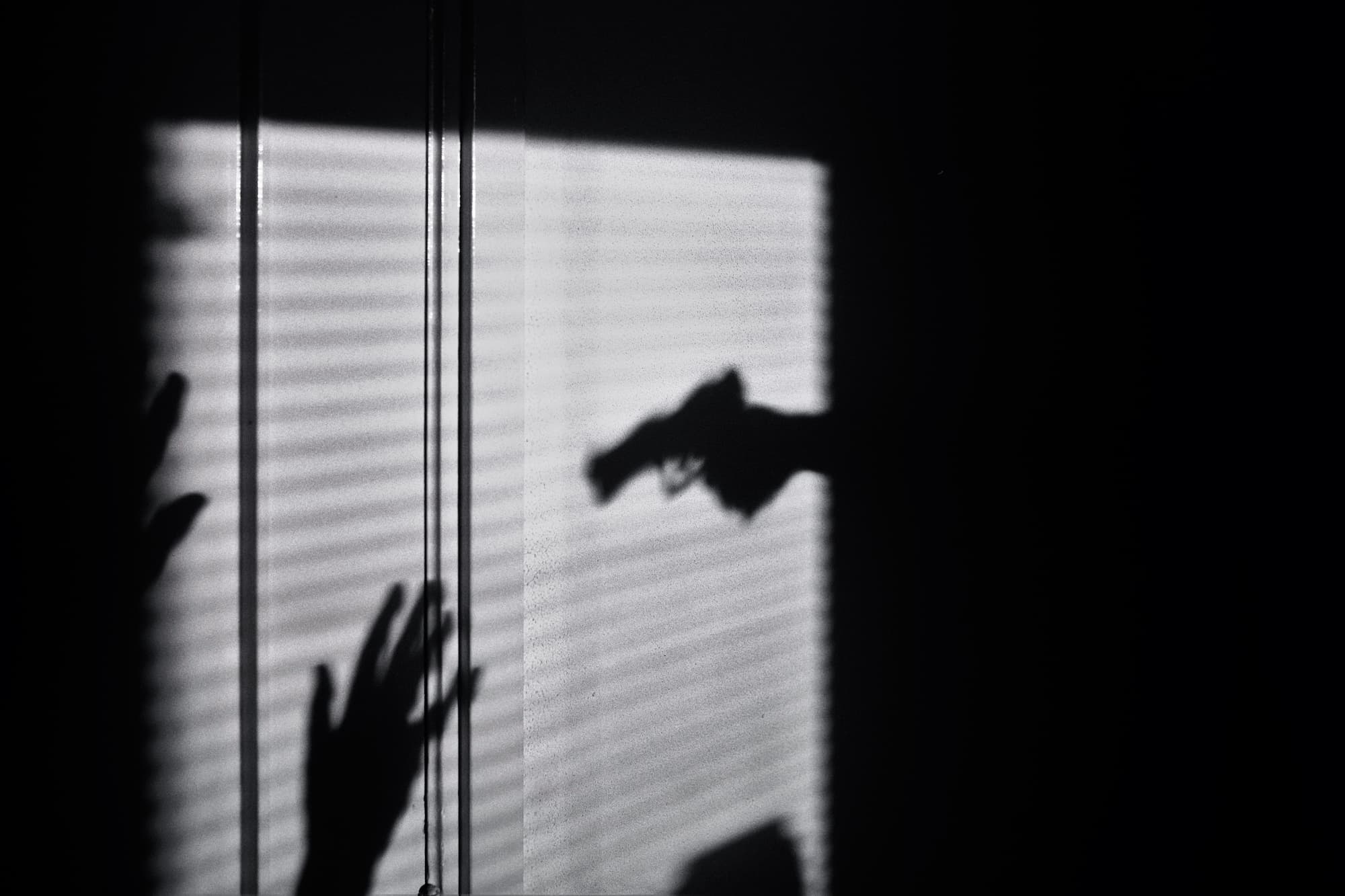
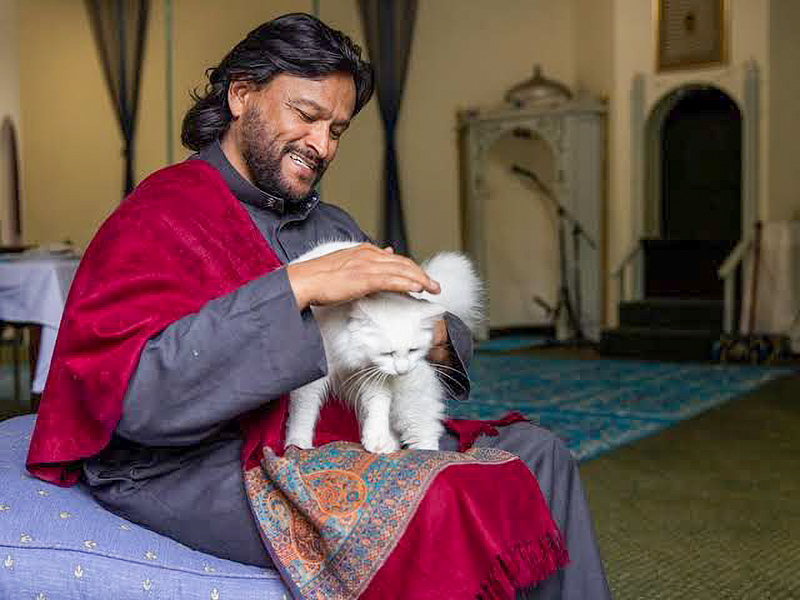















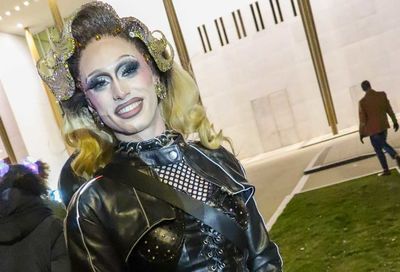
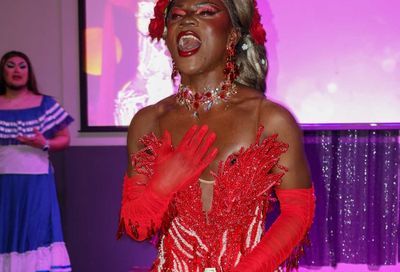
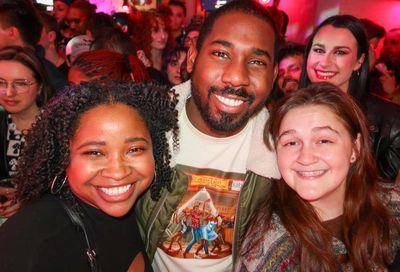
You must be logged in to post a comment.